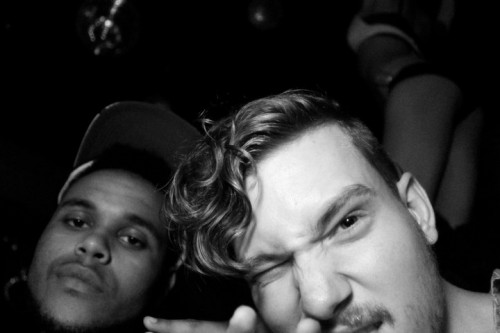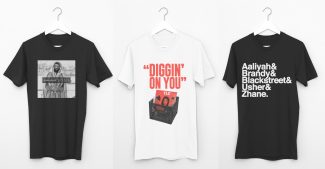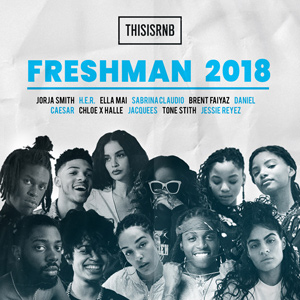A little more than a year ago, before The Weeknd received a co-sign from fellow Canadian superstar Drake, before he released his breakout mixtape “House of Balloons, and before he became one of the most talked about new artists in music and spun the genre of R&B on its head, there was a duo creating a new sound, and they were calling themselves “The Weekend” (pictured above, notice the normal spelling). The duo made up of Abel Tesfaye (now The Weeknd) and Jeremy Rose (now known as Zodiac).
When Rose, a budding producer, moved to Toronto and eventually became friends with Tesfaye, he drove the idea of a darker R&B project, something completely different from the sound Abel was going for with his group, The Noise. Together they would create what we now know as “What You Need,” “Loft Music,” the original version of “The Morning,“ and the first half of “The Party & the After Party.”
However at some point, creative differences caused a rift in their relationship. Abel wanted to do things creatively different from Rose’s vision and asked to just receive beats from Jeremy without his input. They would part ways with Rose emphasizing that he still gets credit for his production, and The Weekend would then become The Weeknd. Things started getting crazy for The Weeknd after three songs were posted to Drake’s blog early last year, “What You Need,” “Loft Music,” and the original version of “The Morning,” all without Jeremy’s production credit. This then lead to his break with featuresw and articles on the New York Times and Pitchfork. Since then, Doc McKinney and Illangelo have gone on to publicly receive all the credit for producing “House of Balloons,” while Jeremy has yet to receive payment or recognition.
Vice sat down with Jeremy to discuss his background, how he met Abel, what Drake thinks of the situation, and how he influenced the sound we now associate with The Weeknd. Check out an excerpt below…
How did you first meet Abel?
My girlfriend was working at Poutini’s [a poutine spot in Toronto, obviously] and I used to hang out with a couple of these Australian guys that worked there. That’s where I met Abel, he was hanging out at their house. I was showing them some things in Ableton, because they were interested in that stuff and I was playing the beat for “What You Need.” I had that thing for a couple years and I didn’t know what to do with it. Anyway, Abel was there and he started free-styling on top of it.Right. When you two first met, was Abel’s creative direction heading in the same direction it has been over the past year?
No. When I met him I heard some of the stuff that he was doing. It was called the Noise. Remember that? It came out after he broke. It was this group, with him and another producer and it was called the Noise. They were a straight kind of R&B, just really light and kind of candlelight… [sings] “I wanna see you in your birthday suit”… And I was just like, “Aw, fuck that shit. No man, let’s talk about, fuckin’ and getting too high and trying to fuck bitches and it not working out. Let’s get really grimy about it.”Do you feel like Abel’s lyrical content changed in line with the production? In other words, he wasn’t talking about fuckin’ and suckin’ and getting ripped until shortly after you met him?
He had a lot of stuff written. He always had something written in his Blackberry or something. I’m not saying he was a really light guy or anything like that. He had [the writing] in there, but a lot of it was in the form of raps.And obviously he’s not a rapper.
He can rap. I produced the entirety of an album, but it wasn’t really going in a good direction so we scrapped most of it. He rapped on about a third of it.What was your personal relationship like with Abel during this period? Would you say you were friends?
We were just trying to work on music. We were also partying a lot. We became pretty good friends, hanging out every day. At first it was working pretty well, but then I don’t know if it was a change in his heart or the people around Abel trying to guide him, but he was starting to push for doing club tracks and I didn’t really want to [do that]. We started as a group; it was he and I, and we called ourselves “The Weekend.” I came up with that name, by the way.How did the “e” get dropped?
Well, I left. He dropped the “e.” But he was pushing for some things I didn’t want to do, and it got to the point where he wouldn’t respect my opinion. He wanted me to produce for him without any of my input. And I was like, “Well then, what’s the point of being a group?” and he was like, “You can just be my producer,” and I said, “Are you going to pay me?” Then [I realized he was] not going to pay me. That’s why I backed out. I was like, “You can have those three or four tracks, I’ll give you the stems, just take ’em, but I don’t want to work with you anymore.” I was really congenial about it, but I told him, “Just make sure that you give me credit,” and that’s where things went sour.




